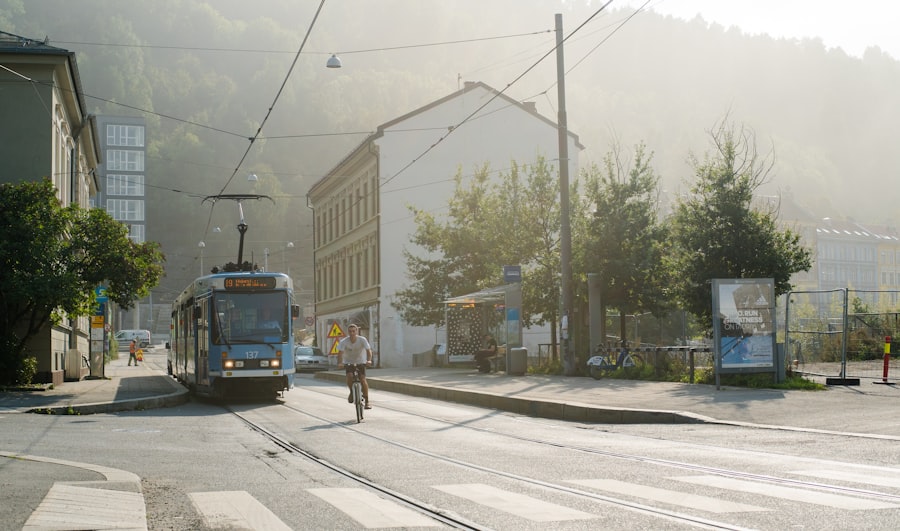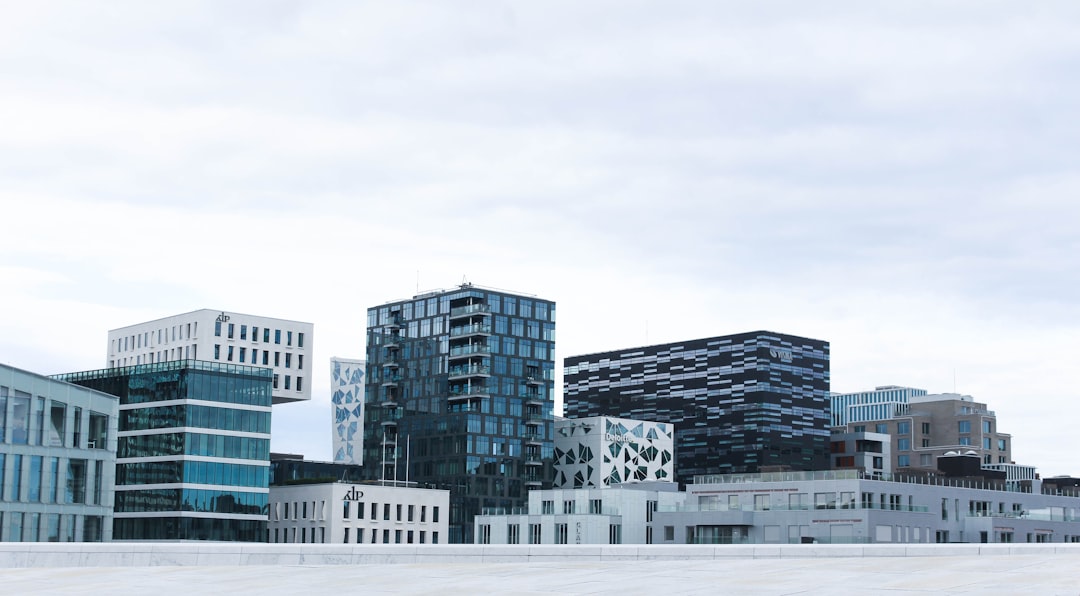Raising teenagers in Norway presents a unique blend of challenges and opportunities, shaped by the country’s cultural values and societal norms. Norwegian society places a strong emphasis on equality, independence, and respect for individual rights, which significantly influences parenting styles and the upbringing of adolescents. As parents navigate the complexities of adolescence, they must balance the need for guidance with the desire to foster autonomy in their children.
This delicate equilibrium is essential in helping teenagers develop into responsible and self-sufficient adults. Moreover, the Norwegian approach to parenting often encourages open communication and mutual respect between parents and their children. This fosters an environment where teenagers feel comfortable expressing their thoughts and emotions, which is crucial during this tumultuous stage of life.
Understanding the nuances of raising teenagers in Norway requires an appreciation of the cultural context, as well as an awareness of the resources available to support both parents and adolescents in this journey. Take the first step. Book a consultation with the Norway Relocation Group for your move to Norway.
Summary
- Norwegian teenagers value independence and responsibility, which is reflected in the parenting style and education system.
- Outdoor activities and sports play a significant role in Norwegian teen culture, promoting physical and mental wellbeing.
- The Norwegian education system focuses on holistic development and encourages students to take responsibility for their learning.
- Balancing independence and responsibility is a key aspect of raising teenagers in Norway, allowing them to make their own decisions while also guiding them.
- Norwegian parenting styles emphasise open communication, trust, and support, contributing to the overall wellbeing of teenagers.
Understanding Norwegian Teen Culture
Norwegian teen culture is characterised by a strong sense of community and inclusivity, reflecting the broader values of Norwegian society. Adolescents often engage in various social activities that promote teamwork and collaboration, such as sports, music, and outdoor adventures. These activities not only provide a platform for social interaction but also help teenagers develop essential life skills, such as communication, leadership, and resilience.
The emphasis on group activities fosters a sense of belonging among teenagers, which is vital for their emotional development. Additionally, Norwegian teens are known for their strong connection to nature and the outdoors. Many adolescents participate in outdoor pursuits such as hiking, skiing, and camping, which are integral to Norwegian culture.
This connection to nature not only promotes physical health but also encourages a sense of responsibility towards the environment. Understanding these cultural elements is crucial for parents seeking to support their teenagers in navigating their social lives and developing a strong sense of identity.
Navigating the Norwegian Education System

The Norwegian education system is designed to promote equal opportunities for all students, regardless of their background. Education is compulsory for children aged six to sixteen, and the system is characterised by a focus on holistic development rather than solely academic achievement. This approach allows teenagers to explore their interests and talents while receiving a well-rounded education.
Parents play a vital role in supporting their children through this system, helping them navigate the various stages of education from primary school to upper secondary school. As teenagers transition into upper secondary education, they face important decisions regarding their future paths. The Norwegian education system offers a range of vocational and academic programmes, allowing students to tailor their education to their interests and career aspirations.
Parents can assist their teenagers by encouraging them to explore different options and providing guidance on how to make informed choices about their educational journeys. This support is essential in helping adolescents feel empowered and confident as they embark on the next phase of their lives.
Balancing Independence and Responsibility
One of the key aspects of raising teenagers in Norway is finding the right balance between granting independence and instilling a sense of responsibility. Norwegian culture values autonomy, and parents are encouraged to allow their teenagers to make decisions and learn from their experiences. This approach helps adolescents develop critical thinking skills and fosters a sense of ownership over their choices.
However, it is equally important for parents to set boundaries and expectations that promote accountability. Establishing clear guidelines can help teenagers understand the importance of responsibility while still allowing them the freedom to explore their interests. For instance, parents might encourage their children to take on household chores or manage their own schedules, which can instil a sense of discipline and time management.
By fostering an environment where independence is celebrated alongside responsibility, parents can help their teenagers navigate the complexities of adolescence with confidence.
Encouraging Outdoor Activities and Sports
In Norway, outdoor activities and sports are not just pastimes; they are integral components of the national identity. Encouraging teenagers to engage in outdoor pursuits can have numerous benefits for their physical health, mental wellbeing, and social development. Activities such as skiing, hiking, and team sports provide opportunities for adolescents to connect with nature while also fostering camaraderie among peers.
These experiences can be particularly valuable in building resilience and coping skills. Moreover, participation in sports can enhance teenagers’ self-esteem and confidence as they develop new skills and achieve personal goals. Parents can play a crucial role in facilitating these activities by providing transportation, encouraging participation, and even joining in on family outings.
By promoting an active lifestyle that embraces Norway’s stunning natural landscapes, parents can help their teenagers cultivate a lifelong appreciation for outdoor activities while also strengthening family bonds.
Addressing Mental Health and Wellbeing

Mental health is an increasingly important topic among teenagers in Norway, as it is globally. The pressures of adolescence can lead to various mental health challenges, including anxiety and depression. It is essential for parents to be aware of these issues and to create an open dialogue about mental health within the family.
Encouraging teenagers to express their feelings and seek help when needed can significantly impact their overall wellbeing. Norway has made significant strides in promoting mental health awareness and providing resources for adolescents facing challenges. Schools often have access to counsellors who can offer support, while various community organisations provide additional resources for families.
Parents should actively seek out these resources and encourage their teenagers to utilise them when necessary. By prioritising mental health and wellbeing, families can create a supportive environment that fosters resilience and emotional growth.
Exploring Social Life and Peer Relationships
Navigating social life during adolescence can be both exciting and challenging for teenagers in Norway. Peer relationships play a crucial role in shaping identity and self-esteem during this developmental stage. Parents should encourage their teenagers to build healthy friendships while also being mindful of potential negative influences.
Open communication about relationships can help adolescents feel supported as they navigate the complexities of social dynamics. Moreover, understanding the importance of inclusivity within Norwegian culture can guide parents in fostering positive social interactions for their teenagers. Encouraging participation in group activities or community events can help adolescents expand their social circles while also promoting a sense of belonging.
By actively engaging with their children’s social lives, parents can provide valuable insights and guidance that will help them develop meaningful connections with peers.
Managing Technology and Screen Time
In today’s digital age, managing technology use among teenagers has become a significant concern for parents worldwide, including those in Norway. While technology offers numerous benefits for communication and learning, excessive screen time can lead to negative consequences for mental health and social interactions. Establishing healthy boundaries around technology use is essential for promoting a balanced lifestyle.
Parents should engage in open discussions with their teenagers about responsible technology use, including setting limits on screen time and encouraging offline activities. By modelling healthy behaviours themselves, parents can demonstrate the importance of balancing digital engagement with real-world interactions. Additionally, fostering an environment where technology is used as a tool for learning rather than a distraction can help teenagers develop critical skills while maintaining meaningful connections with family and friends.
Embracing Norwegian Parenting Styles
Norwegian parenting styles are often characterised by a blend of warmth, support, and encouragement for independence. This approach aligns with the broader cultural values of egalitarianism and respect for individual rights. Parents are encouraged to foster open communication with their children while also allowing them the freedom to explore their interests and make decisions.
Embracing these parenting styles can create a nurturing environment that promotes healthy development during adolescence. Moreover, understanding the significance of play in Norwegian culture can further enhance parenting practices. Play is seen as an essential aspect of childhood development, allowing children to learn through exploration and creativity.
By incorporating play into family life, parents can strengthen bonds with their teenagers while also encouraging them to develop problem-solving skills and resilience.
Supporting Language and Cultural Integration
For families who have recently moved to Norway or are raising bilingual children, supporting language acquisition and cultural integration is vital for adolescents’ overall development. Proficiency in Norwegian not only enhances communication but also facilitates social interactions with peers and integration into the community. Parents should actively encourage language learning through various means, such as enrolling their children in language courses or engaging them in conversations at home.
Cultural integration goes beyond language; it involves immersing adolescents in Norwegian traditions, customs, and values. Participating in local events or community activities can help teenagers develop a sense of belonging while also fostering appreciation for their heritage. By supporting both language acquisition and cultural integration, parents can empower their teenagers to navigate their identities confidently within Norwegian society.
Seeking Professional Support and Resources
Raising teenagers in Norway can be both rewarding and challenging, making it essential for parents to seek professional support when needed. Various resources are available to assist families in navigating the complexities of adolescence, including counselling services, parenting workshops, and community organisations focused on youth development. Parents should not hesitate to reach out for help if they encounter difficulties or have concerns about their children’s wellbeing.
Additionally, schools often provide access to resources that support both students and families during challenging times. Engaging with teachers or school counsellors can offer valuable insights into adolescents’ behaviour and academic performance while also providing guidance on how best to support them at home. By proactively seeking professional support and utilising available resources, parents can create a nurturing environment that fosters healthy development during this critical stage of life.
In conclusion, raising teenagers in Norway involves navigating a unique cultural landscape that emphasises independence, responsibility, and community engagement. By understanding Norwegian teen culture, supporting educational journeys, encouraging outdoor activities, addressing mental health concerns, managing technology use, embracing parenting styles that promote open communication, supporting language acquisition, and seeking professional resources when necessary, parents can effectively guide their adolescents through this transformative period of life. For those looking to enhance their understanding of Norwegian culture or improve language skills while raising teenagers in Norway, consider enrolling in courses at the NLS Norwegian Language School in Oslo.
These courses offer tailored instruction that caters specifically to individuals seeking to integrate into Norwegian society more effectively while providing valuable insights into cultural nuances that can enrich family life during this pivotal stage of development.
Learn more about the Norwegian classes at the NLS Norwegian Language School in Oslo

